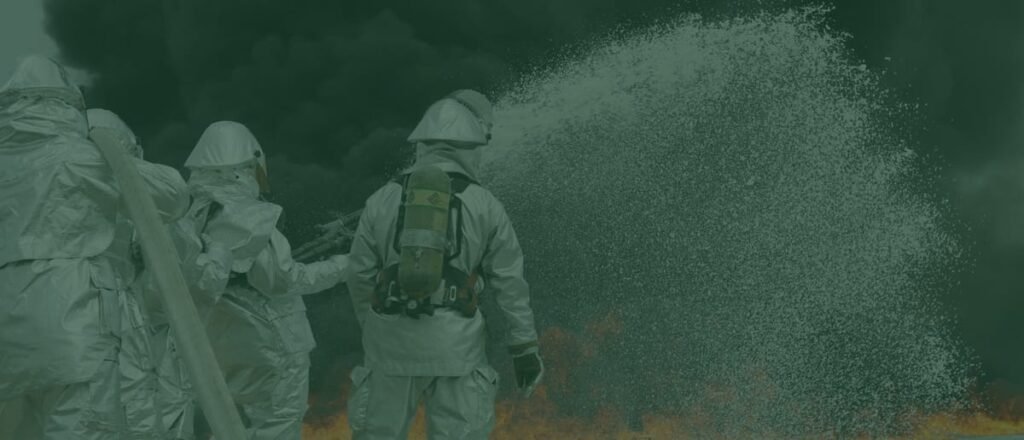
AFFF Lawsuits: Seeking Justice for PFAS Contamination & Cancer Victims
Aqueous Film-Forming Foam (AFFF) is a specialized firefighting foam that has been used for decades to combat high-intensity, flammable liquid fires, particularly those involving jet fuel. While effective, AFFF contains highly toxic chemicals known as PFAS (per- and polyfluoroalkyl substances), often called “forever chemicals” due to their persistence in the environment and the human body.
Thousands of lawsuits allege that exposure to AFFF – whether through direct contact or contaminated water supplies – has led to severe health complications, most notably various cancers. If you or a loved one developed cancer or other serious illnesses after exposure to AFFF, your family may be entitled to significant compensation. Tort Portal is dedicated to connecting you with experienced legal professionals who are actively pursuing these critical lawsuits.
What is AFFF and Why is it Harmful?
AFFF was developed in the 1960s and quickly became the standard for suppressing liquid fuel fires at military bases, airports, fire departments, and industrial facilities. Its efficacy comes from the PFAS chemicals it contains, which create a film that quickly smothers the fire.
The danger lies in these PFAS chemicals, including PFOS (perfluorooctane sulfonate) and PFOA (perfluorooctanoic acid). These synthetic compounds are extremely resistant to heat, water, and oil, making them highly effective fire suppressants but also incredibly persistent and bioaccumulative. Once released into the environment, they do not break down, contaminating soil, groundwater, and drinking water sources for decades. When absorbed by the human body, PFAS can accumulate in the blood, liver, kidneys, and other tissues, leading to long-term health risks.
Health Risks Linked to AFFF (PFAS) Exposure
A growing body of scientific research and direct legal testimony from AFFF lawsuits point to a strong connection between PFAS exposure and a range of severe health conditions. The most commonly cited illnesses in litigation include:
- Kidney Cancer: A significant focus of current litigation.
- Testicular Cancer: Also a primary focus in initial bellwether trials.
- Thyroid Cancer: PFAS can disrupt thyroid hormone function.
- Liver Cancer: PFAS accumulate in the liver.
- Ulcerative Colitis: An inflammatory bowel disease.
- Thyroid Disease: Including hypothyroidism and other dysfunctions.
- Prostate Cancer
- Bladder Cancer
- Pancreatic Cancer
- Breast Cancer
- Leukemia and Lymphoma (beyond Non-Hodgkin Lymphoma, though that’s common in Roundup cases).
- High Cholesterol
- Pregnancy-Induced Hypertension (Preeclampsia) and Gestational Diabetes
- Immune System Suppression
- Developmental Effects in Children
- Infertility
Who is at Risk of AFFF Exposure?
Individuals who have faced the highest risk of AFFF exposure include:
- Firefighters: Both civilian and military firefighters who directly handled or were repeatedly exposed to AFFF during training exercises or fire suppression.
- Military Personnel: Service members (current and former) stationed at military bases where AFFF was regularly used, including pilots, mechanics, and other personnel.
- Airport Workers: Those involved in crash crew training, maintenance, or operations at commercial airports where AFFF was used.
- Industrial Workers: Employees at chemical plants, oil refineries, or other facilities that used AFFF to combat industrial fires.
- Residents Near Contaminated Sites: Individuals and communities living near military bases, airports, or industrial facilities where AFFF was frequently used, leading to contaminated groundwater or drinking water.
Exposure can occur through inhalation of foam mist, direct skin contact, or ingestion of contaminated water or food grown in contaminated soil.
Current Status of AFFF Lawsuits (as of June 2025)
The AFFF litigation is one of the largest and most complex mass torts in U.S. history. Thousands of lawsuits against manufacturers like 3M, DuPont, Chemours, Tyco Fire Products, and Kidde-Fenwal have been consolidated into a Multidistrict Litigation (MDL 2873) in the U.S. District Court for the District of South Carolina.
Key Developments as of June 2025:
- Significant Growth: The AFFF MDL continues to grow rapidly, with over 10,391 active cases as of June 2025.
- Bellwether Trials Approaching: The first individual personal injury bellwether trial is scheduled for October 20, 2025. This initial trial will focus exclusively on kidney cancer claims to avoid jury confusion, as ruled by Judge Richard Gergel. The judge is still deciding whether this will be a single plaintiff or up to three plaintiffs consolidated.
- Settlement Momentum: While specific individual personal injury settlements have not yet occurred on a large scale, there is increasing optimism among legal professionals that broader settlements may materialize before or after the initial bellwether trials. Earlier in 2024, significant settlements were reached with public water systems over PFAS contamination (e.g., DuPont’s $1.185 billion settlement).
- Expanded Accepted Injuries: The litigation is expanding to include more conditions. Liver cancer and thyroid cancer have recently been added to the list of conditions that plaintiffs plan to pursue as part of the MDL, with expert reports due later in summer 2025.
- Science Days: “Science Days” are scheduled for June 6 and June 20, 2025, to present scientific research on the links between PFAS exposure and conditions like kidney cancer, testicular cancer, ulcerative colitis, liver cancer, and thyroid disease.
- State-Level Actions: Beyond the federal MDL, states and municipalities continue to pursue separate lawsuits against AFFF manufacturers for environmental contamination and cleanup costs.
- Legislative Action: There is increasing legislative action across various states to ban or restrict PFAS-containing products, reflecting growing public health concerns.
Plaintiffs in these lawsuits are seeking compensation for:
- Past and future medical expenses related to their AFFF-linked illness.
- Lost wages and diminished earning capacity due to their condition.
- Significant pain and suffering.
- Emotional distress and mental anguish.
- Loss of enjoyment of life.
- Wrongful death damages for families who lost a loved one due to AFFF-related disease.
Do You Qualify for an AFFF Lawsuit?
You may be eligible to file an AFFF lawsuit if:
- You had significant exposure to AFFF (e.g., as a firefighter, military personnel, or lived near a contaminated site).
- You were diagnosed with a qualifying illness linked to PFAS exposure (e.g., kidney cancer, testicular cancer, thyroid cancer, liver cancer, ulcerative colitis, or thyroid disease).
- Your diagnosis occurred after your AFFF exposure.
Given the active and rapidly evolving nature of this litigation, including the approaching bellwether trials and potential settlement discussions, it is absolutely critical to consult with an attorney immediately. Strict statutes of limitations (legal deadlines) apply, and missing them could permanently bar your right to seek compensation.
Let Tort Portal Connect You with AFFF Litigation Experts
The fight for justice against major chemical manufacturers involved in the AFFF litigation requires a legal team with unparalleled expertise, extensive resources, and a deep understanding of complex scientific and environmental evidence.
Tort Portal can help. We specialize in connecting individuals affected by AFFF with leading law firms that have a proven track record in toxic tort and mass tort litigation. Our partner attorneys are at the forefront of the AFFF lawsuits, understand the nuances of PFAS science, and are committed to fighting fiercely for the justice and maximum compensation you deserve.
If you or a loved one developed a serious illness after AFFF exposure, don’t face this battle alone. Take the first step toward securing your future and holding responsible parties accountable.
